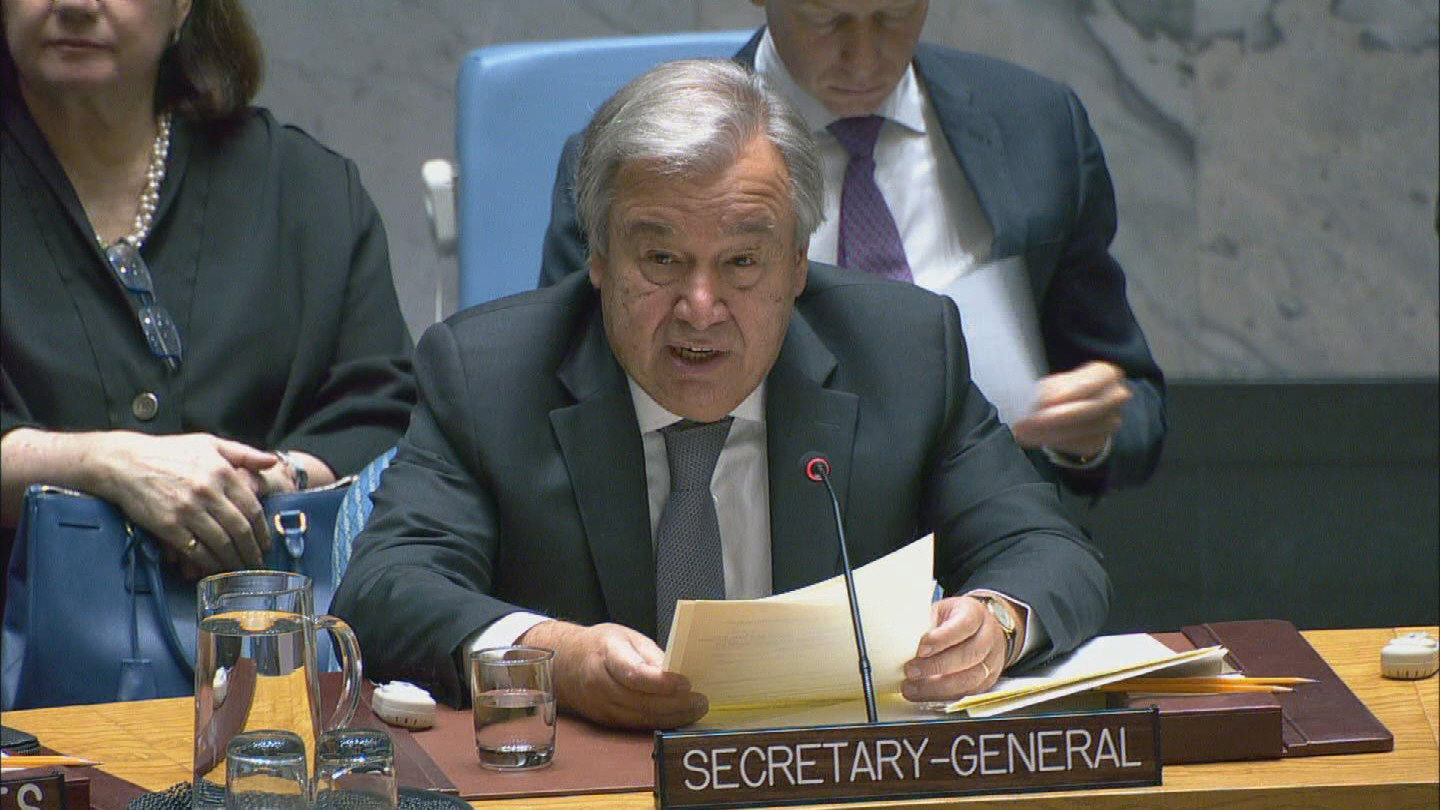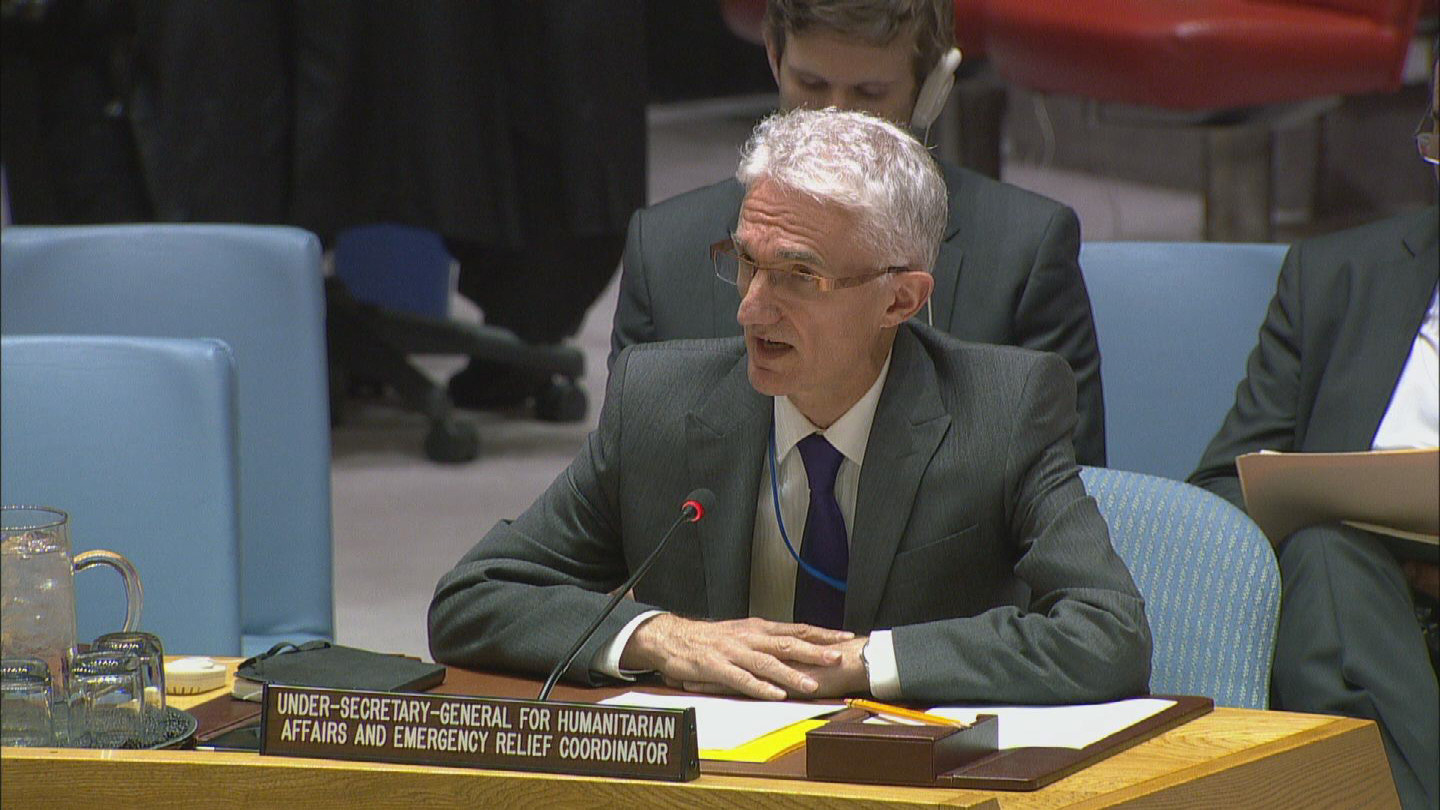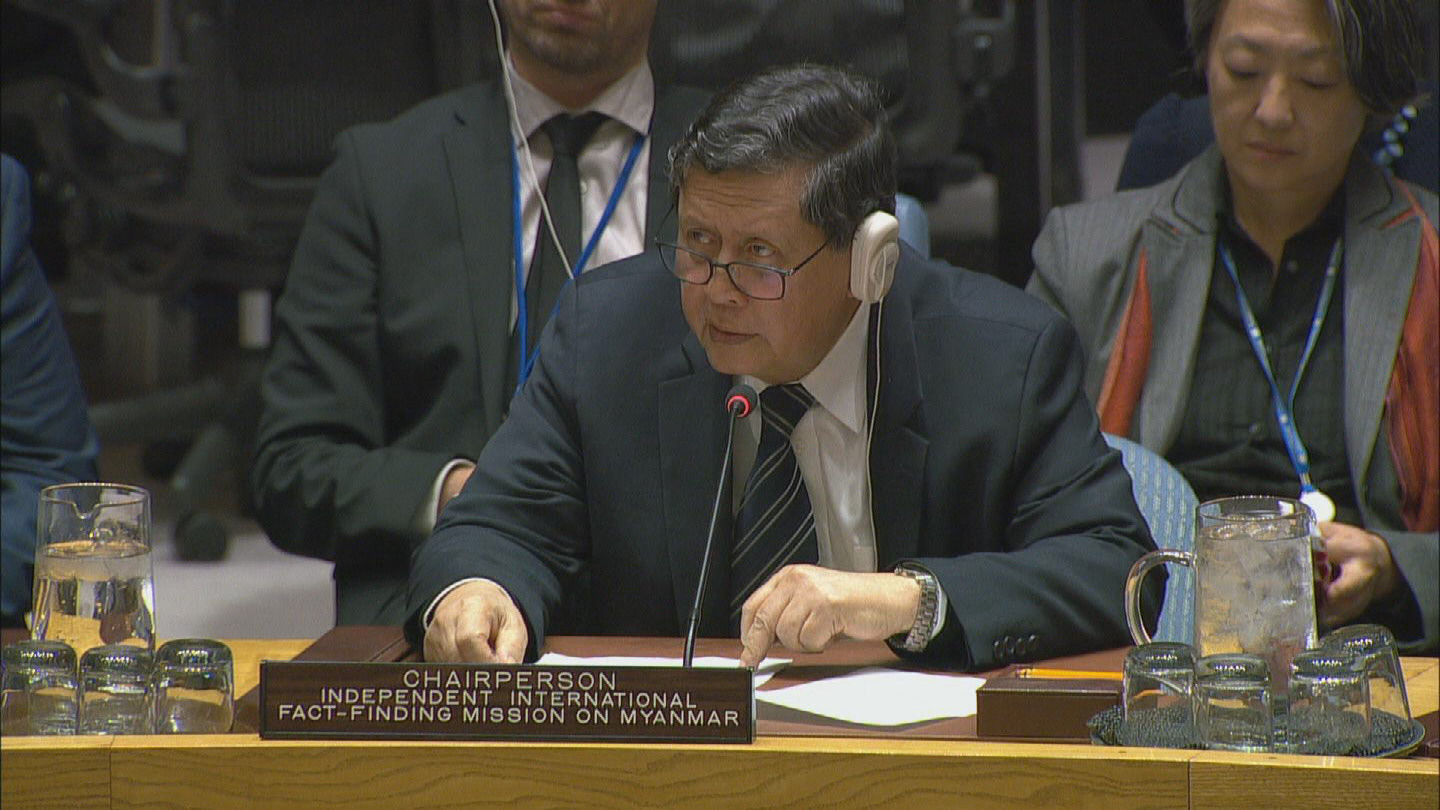UN / MEDIATION
Download
There is no media available to download.
Share
STORY: UN / MEDIATION
TRT: 3:45
SOURCE: UNIFEED
RESTRICTION: NONE
LANGAUGE: ENGLISH / NATS
DATELINE: 29 AUGUST 2018, NEW YORK CITY
RECENT – NEW YORK CITY
1. Wide shot, exterior, United Nations Headquarters
29 AUGUST 2018, NEW YORK CITY
2. Various shots, Security Council
3. SOUNDBITE (English) António Guterres, Secretary-General, United Nations:
“As the conflict landscape has changed, so has our understanding of what constitutes an effective mediation process. Innovative thinking on mediation is no longer an option; it is a necessity. I urge you to commit to more effective use of mediation as a tool to save and improve the lives of millions of people around the world.”
4. Wide shot, Security Council
5. SOUNDBITE (English) António Guterres, Secretary-General, United Nations:
“Inclusive mediation requires paying greater attention to the gender dimensions of conflict, including conflict-related sexual violence and the gendered impact of decisions around post-war reconstruction. For example, the design of a post-conflict constitutional committee or a federal system will have a significant impact on women and their participation.”
6. Wide shot, Security Council
7. SOUNDBITE (English) António Guterres, Secretary-General, United Nations:
“we should invest in the mediation and conciliation opportunities offered by information technology. We are all aware of the role social media can play in exacerbating divisions and provoking hostility. But social platforms can also be a tool to bring communities together, stimulate dialogue, share information and heal historic wrongs.”
8. Wide shot, Security Council
9. SOUNDBITE (English) The Most Reverend and Right Honourable Justin Welby, Archbishop of Canterbury:
“Mediation can only be effective when it is in the context of structures of reconciliation. When Mediation is about resolving conflict, reconciliation is the process of transforming violent conflict into non-violent co-existence where communities have come to terms with history and are learning to disagree well.”
10. Wide shot, Security Council
11. SOUNDBITE (English) the Most Reverend and Right Honourable Justin Welby, Archbishop of Canterbury:
“The role that an institution like the church plays here is significant. Religious institutions are often the only functioning institution in a fragile or pre-conflict situation. They are present before, during and after conflict. They provide early warning for sings of conflict in communities. Working with and through religious and other institutions to provide ‘pre-emptive’ reconciliation frameworks can stop conflict becoming violent or returning to violence – it can set it on a different path. Their work is done by young and old, by women and men, by rich and poor. It seeks a peoples’ peace.”
12. Wide shot, Security Council
13. SOUNDBITE (English) Mossarat Qadeem, Co-founder of PAlMAN Alumni Trust:
“Women place greater relative weight on interaction-specific aspects in mediation than men and often perceive most negotiation to include a relationship dimension even in the most challenging environment. From intervention with family members who may be fighting with armed groups, to advocacy for referenda associated with peace agreements, to serving as a part of early warning systems for conflict prevention, women provide a grassroots underpinning to peacebuilding processes.”
14. Wide shot, Security Council
15. SOUNDBITE (English) Mossarat Qadeem, Co-founder of PAlMAN Alumni Trust:
“At a basic level, their participation is a question of equality and equity: it matters because peace negotiations and the agreements they generate set the structure and design for post-conflict reconstruction and politics, as was just mentioned by the Secretary-General, which affect the lives of all women and the whole of society. Women mediators can ensure that process, agreements are more gender-sensitive and thus more comprehensive and legitimate.”
16. Wide shot, Security Council
The United Nations (UN) Secretary-General António Guterres told the Security Council that as the conflict landscape has changed, innovative thinking on mediation is a “necessity,” urging the Council to “commit to more effective use of mediation as a tool to save and improve the lives of millions of people around the world.”
Speaking to the Security Council today (29 Aug) in New York, the UN chief António Guterres noted that successful mediation and the peaceful settlement of disputes requires a deep understanding of leaders and their constituencies – and strong political will.
He noted that the Declaration on Peace and Friendship signed by the leaders of Ethiopia and Eritrea last month, after 20 years of conflict and stalemate, is an example of political courage that is already having a positive effect throughout the region.
The UN chief also highlighted the importance of investing in women’s participation and leadership in peace processes, and to ensure women always have a seat at the table and that their voices are heard.
Guterres also said “inclusive mediation requires paying greater attention to the gender dimensions of conflict, including conflict-related sexual violence and the gendered impact of decisions around post-war reconstruction. For example, the design of a post-conflict constitutional committee or a federal system will have a significant impact on women and their participation.”
Encouraging investing in the mediation and conciliation opportunities offered by information technology, the UN chief said “we are all aware of the role social media can play in exacerbating divisions and provoking hostility. But social platforms can also be a tool to bring communities together, stimulate dialogue, share information and heal historic wrongs.”
The Most Reverend and Right Honourable Justin Welby, Archbishop of Canterbury told the Council that “mediation can only be effective when it is in the context of structures of reconciliation.”
He said, “when mediation is about resolving conflict, reconciliation is the process of transforming violent conflict into non-violent co-existence where communities have come to terms with history and are learning to disagree well.”
The Archbishop highlighted that the role that an institution like the church plays is “significant.”
He said “religious institutions are often the only functioning institution in a fragile or pre-conflict situation. They are present before, during and after conflict. They provide early warning for sings of conflict in communities. Working with and through religious and other institutions to provide ‘pre-emptive’ reconciliation frameworks can stop conflict becoming violent or returning to violence – it can set it on a different path. Their work is done by young and old, by women and men, by rich and poor. It seeks a peoples’ peace.”
Mossarat Qadeem, who is a Co-founder of PAlMAN Alumni Trust told the Council that women place greater relative weight on interaction-specific aspects in mediation than men and often perceive most negotiation to include a relationship dimension even in the most challenging environment.”
She added “from intervention with family members who may be fighting with armed groups, to advocacy for referenda associated with peace agreements, to serving as a part of early warning systems for conflict prevention, women provide a grassroots underpinning to peacebuilding processes.”
Qadeem reiterated that women should be involved in mediation and peace process because “at a basic level, their participation is a question of equality and equity: it matters because peace negotiations and the agreements they generate set the structure and design for post-conflict reconstruction and politics, as was just mentioned by the Secretary-General, which affect the lives of all women and the whole of society.”
She added “women mediators can ensure that process, agreements are more gender-sensitive and thus more comprehensive and legitimate.”
PAIMAN Alumni Trust is a nonprofit organization, established in 2004. It works in areas including conflict transformation, peacebuilding, gender development and political education.









